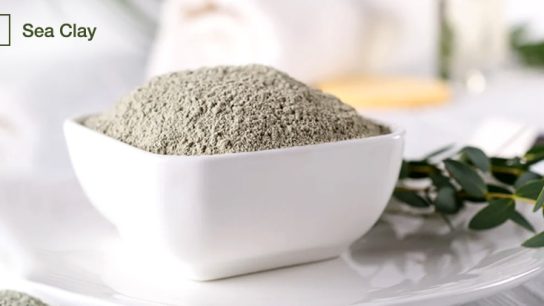In an age of fast-paced living and endless pharmaceutical options, many people are turning to natural remedies to support their health and well-being. Whether it’s seeking relief from stress, boosting immunity, or managing pain, the allure of nature’s solutions is undeniable. The good news is that many daily habits that have been passed down through generations are now supported by scientific research, making them both accessible and credible in our modern lives. In this article, we explore several natural remedies backed by science, offering practical ways to incorporate them into your daily routine.
1. Hydration: The Foundation of Health
The simplest and most effective natural remedy is also the most basic: drinking water. Hydration is crucial for nearly every bodily function. Water aids in digestion, supports circulation, maintains body temperature, and ensures the proper functioning of organs and tissues. Scientific studies consistently show that staying hydrated improves cognitive function, increases energy levels, and boosts physical performance.
While the “8 glasses a day” rule is often cited, individual needs vary depending on factors such as activity level, age, and climate. To ensure proper hydration, try to listen to your body’s cues. Keep a reusable water bottle nearby, and aim to drink water consistently throughout the day. You can also enhance hydration by eating water-rich foods such as cucumbers, watermelon, and leafy greens.
2. Mindfulness Meditation: The Science of Stress Reduction
Stress has become an endemic issue in modern society, contributing to a myriad of health problems, from hypertension to anxiety. Fortunately, mindfulness meditation has emerged as a scientifically validated method for managing stress. Regular mindfulness practices help lower cortisol levels (the stress hormone), reduce anxiety, and enhance emotional resilience.
Numerous studies have shown that mindfulness meditation can lead to structural changes in the brain, particularly in areas associated with emotional regulation, such as the amygdala and the prefrontal cortex. One of the most popular mindfulness techniques is focusing on your breath, gently guiding your attention back to it when distractions arise. Even a brief daily practice, around 10 to 15 minutes, can significantly impact your stress levels and promote a sense of calm.
3. Sleep: The Ultimate Natural Remedy
Sleep is perhaps the most underrated natural remedy for health. It is during sleep that the body performs vital functions such as cellular repair, memory consolidation, and immune system strengthening. Adequate and quality sleep has been shown to improve mood, enhance cognitive function, and reduce the risk of chronic conditions like heart disease, diabetes, and obesity.
The science behind sleep quality is profound. The body’s internal clock, or circadian rhythm, regulates many biological processes, including the release of hormones like melatonin, which help induce sleep. To foster better sleep, aim for 7-9 hours of uninterrupted sleep per night. Establishing a consistent sleep routine, limiting screen time before bed, and creating a calm, dark sleeping environment can significantly improve the quality of your sleep.
4. Physical Activity: The Natural Antidepressant
Regular exercise is a natural remedy that has been consistently proven to have numerous health benefits, from improving cardiovascular health to enhancing mood. The science behind exercise as a mood booster lies in its ability to stimulate the release of endorphins, the body’s natural “feel-good” chemicals. In addition, exercise increases the production of serotonin, a neurotransmitter that plays a critical role in mood regulation.
A study published in the American Journal of Preventive Medicine found that just 30 minutes of moderate-intensity exercise, such as brisk walking, five days a week, can reduce symptoms of depression and anxiety. Incorporating physical activity into your daily routine can be as simple as taking the stairs, walking after meals, or engaging in a fitness class. The key is consistency. Whether it’s yoga, swimming, or dancing, find an activity you enjoy and make it a daily habit to experience long-term benefits.
5. Herbal Teas: Ancient Remedies Supported by Science
Herbal teas have long been cherished for their soothing properties, but modern research has confirmed the therapeutic benefits of many herbs. Teas made from ingredients like chamomile, ginger, peppermint, and lemon balm are rich in antioxidants and compounds that promote relaxation, support digestion, and boost immunity.
Chamomile, for instance, is known for its calming effects, making it an excellent choice before bed to improve sleep quality. Ginger tea is commonly used to reduce nausea and improve digestion, while peppermint tea can help alleviate headaches and relieve digestive discomfort. Scientific studies support these uses, highlighting the potent anti-inflammatory, antioxidant, and antimicrobial properties of these herbs.
To integrate these natural remedies into your daily routine, try drinking a cup of herbal tea each morning or evening. Choose a blend that suits your current needs, whether it’s to relax, improve digestion, or boost your immune system.
6. Probiotics: Gut Health for a Better Life
The gut has been called the “second brain” due to its profound impact on overall health. A balanced gut microbiome, populated by beneficial bacteria, is essential for immune function, digestion, and even mental health. Probiotics—live bacteria found in certain foods—play a crucial role in supporting gut health.
Fermented foods like yogurt, kefir, sauerkraut, and kimchi are natural sources of probiotics that have been shown to improve gut flora diversity. Studies suggest that maintaining a healthy gut microbiome can help reduce inflammation, improve mood, and even strengthen the immune system.
Including probiotic-rich foods in your daily diet is a simple way to support your health. Aim for a serving of fermented foods once or twice a day to encourage a balanced and thriving gut microbiome.
7. Deep Breathing: Activate the Parasympathetic Nervous System
Breathing exercises are another easy-to-implement natural remedy with scientific backing. Deep breathing activates the parasympathetic nervous system, which is responsible for the body’s “rest and digest” response. This helps lower heart rate, reduce blood pressure, and trigger a state of relaxation.
The “diaphragmatic breathing” technique is particularly effective. This involves breathing deeply into your diaphragm, expanding your belly with each inhale, and exhaling fully. This practice has been shown to reduce anxiety, improve focus, and enhance overall well-being. Simply taking a few minutes each day to focus on your breath can lead to a significant reduction in stress.
8. Sunlight Exposure: A Natural Mood Enhancer
Exposure to natural sunlight is an effective and natural way to boost mood and regulate the body’s sleep-wake cycle. Sunlight triggers the production of serotonin, a neurotransmitter that enhances mood and promotes a sense of well-being. It also stimulates the production of vitamin D, which plays a crucial role in immune function and bone health.
Research has shown that getting at least 20-30 minutes of sunlight exposure each day—preferably in the morning—can improve mood and increase energy levels. If you live in a region with limited sunlight, consider a light therapy box during the winter months to counteract seasonal affective disorder (SAD).
9. Aromatherapy: Harnessing the Power of Scents
Aromatherapy is another natural remedy supported by science for promoting relaxation and reducing stress. Essential oils like lavender, eucalyptus, and rosemary have been shown to have therapeutic effects on the body and mind. For example, lavender oil has been scientifically proven to reduce anxiety and improve sleep quality. Similarly, peppermint oil can improve cognitive function and relieve headaches.
To incorporate aromatherapy into your daily routine, consider using an essential oil diffuser, adding a few drops of oil to your bath, or applying diluted oils to pulse points. Aromatherapy is a simple, enjoyable way to create a calming atmosphere and support emotional well-being.
10. Gratitude Practice: Positive Psychology for Health
Gratitude is a powerful natural remedy with far-reaching benefits for both mental and physical health. Research has shown that regularly practicing gratitude can improve emotional well-being, reduce stress, and even lower blood pressure. A daily gratitude practice involves taking a few moments each day to reflect on the things you are thankful for, whether big or small.
Studies suggest that writing down three things you are grateful for each day can lead to long-term improvements in mental health and overall happiness. This simple habit can shift your focus from stress and negativity to appreciation and positivity, promoting a greater sense of peace and contentment.
Conclusion
Incorporating daily habits that focus on natural remedies is a powerful way to enhance both physical and mental health. From hydration and sleep to mindfulness and exercise, these simple strategies are grounded in science and can significantly reduce stress, improve mood, and boost overall well-being. Whether you are seeking to reduce anxiety, improve digestion, or simply feel more energized, adopting these natural habits can lead to long-lasting benefits and a more balanced, healthy lifestyle. By making these small but impactful changes, you can harness the healing power of nature in a way that is accessible, effective, and scientifically proven.





